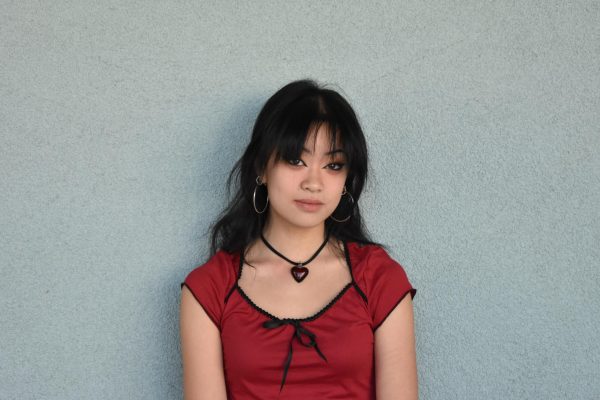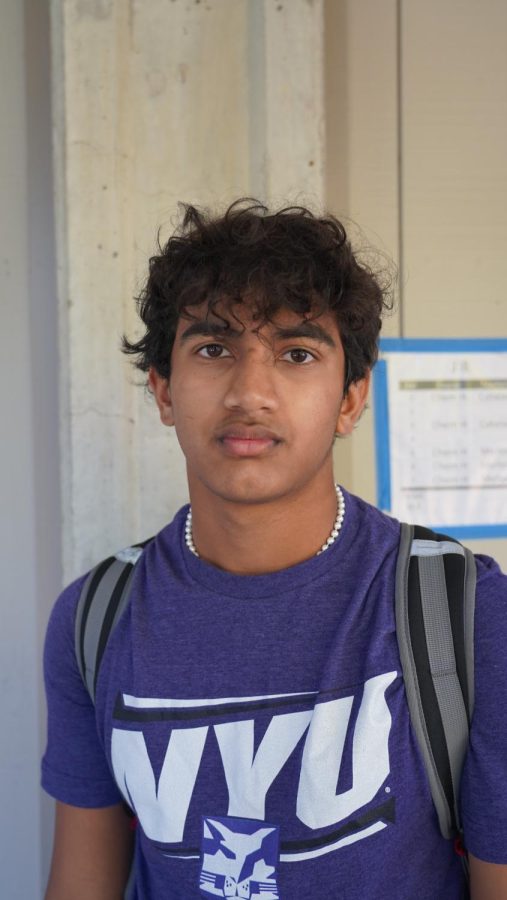Students rediscover optimism through mental wellness journey: Sophomore Amrit Joshi
Sophomore Amrit Joshi is a dedicated baseball player, advocate for racial justice and caring friend. He has also fought a tumultuous battle with mental health since seventh grade, when he was diagnosed with Major Depressive Disorder.
“There were times when everything became very stressful, and [it] almost felt like something was weighing me down,” he said. “When it got really bad, it felt like I couldn’t get out.”
He then spent the next few years discovering himself and his values through spirituality. With the help of a mentor, he ultimately gained a healthier sense of identity and self-worth.
Joshi believes that complete satisfaction with oneself is the key to being truly happy. Controlling individual thoughts in the face of mental illness can be incredibly difficult and at times impossible. Despite his realization of self-contentment, he still struggles with keeping a consistently positive mental state. According to Joshi, it’s hard to stay mentally stable when dealing with uncontrollable circumstances. “Because you’re in [a depressive] state, you have no ability to control your internal thoughts,” he said. “You’re always affected by things going on around you instead of being the truest version of yourself.”
According to a study published to the U.S. National Library of Medicine, improvement in mental health is not always consistently evident. Seeking professional help is incredibly important, especially because mental health recovery is a long process that isn’t always linear. “It’s pretty up and down,” Joshi said. “But I think it’s definitely on an upward trend right now.”
Joshi explains that expanding his perspective on the world catalyzed a shift in the way he approached mental health, directing him towards a healthier state of mind. “It’s a mental snap,” he said. “For me, hearing about the experiences of people that aren’t as privileged as the people in Palo Alto really opened my eyes.”
Through advocating for racial justice and becoming involved in various protests, Joshi was exposed to the personal experiences of people less fortunate than him. Acknowledging that not everyone lives the “Palo Alto life” helped him to realize that his self-worth doesn’t depend on academic and social excellence, a core foundation for his recovery. “I’ve learned a lot in the past six months about people who haven’t had the privileges that I have living in Palo Alto,” he said. “[People who don’t live in Palo Alto] are able to maintain a worthwhile life without having to have all of these superficial things—money, high GPA, a certain degree, a good school. Even without these privileges, they are some of the most quality people in the world.”
Joshi stresses that acknowledging privilege isn’t always beneficial for everyone struggling with mental health issues. “It doesn’t work for all people,” he said. “I know some people feel invalidated when they hear other people talking about their struggles. But for me, it was less of an invalidation and more of an understanding.”
Receiving support from a trusted adult also greatly helped Joshi. “He is the smartest person I know,” Joshi said. “I never really had friends [that I could really] rely on, but when you have a strong connection with someone, nothing can break that spiritual bond between you two. He provides me with insight on life. I know that there are people that have quality friends their age, but I think for me, [what I needed] was a mentor to get me through my problems.”
Joshi believes that listening is the best form of support. “[My mentor provided the] integrity and strength [I needed],” he said. “He was someone who didn’t even need to help me, but he listened. An ear can do a lot for people who have a lot on their mind and a lot weighing on them.”
While there is a seemingly endless number of emotional obstacles, academic struggles or personal hurdles to get through, Joshi feels significantly less pressure. “I now have an understanding of what mental freedom is,” he said. “I was lost in this abyss back then. It felt like there was nothing and everything around me at the exact same time. It felt like being squeezed and let go. While it still somewhat feels like that, it’s less tangible for me to give up now.”
Your donation will support the student journalists of Henry M. Gunn High School. Your contribution will allow us to purchase equipment and cover our annual website hosting costs.

Senior Becca Wu is an editor of In-Depth, The Oracle's newest section. Outside of staff, she enjoys dancing with the Gunn Titanettes and watching horrible...




